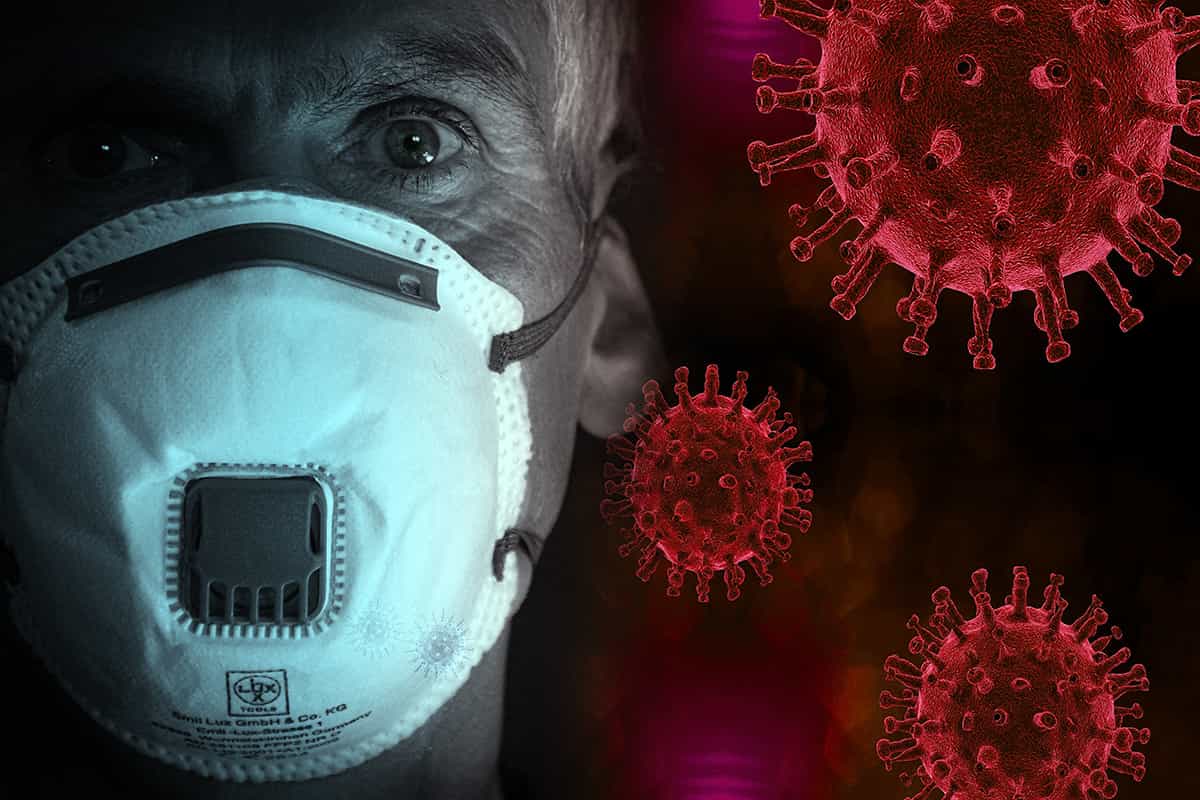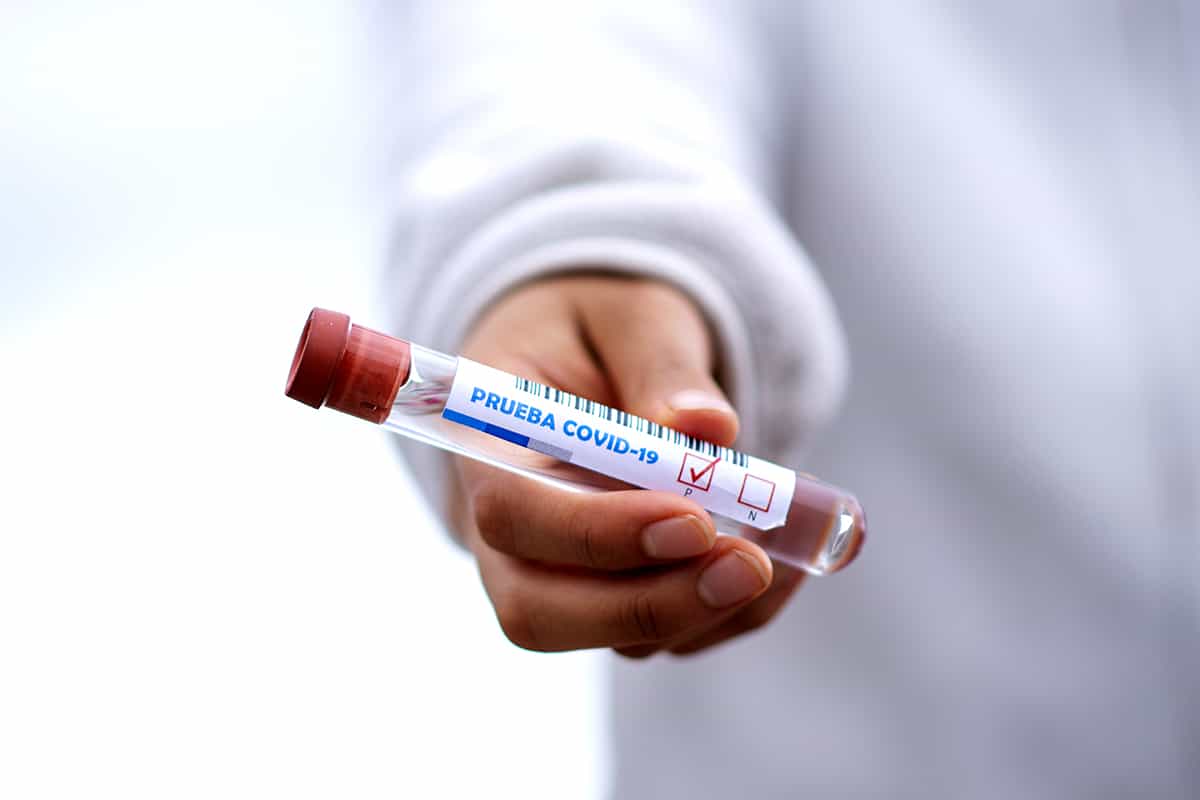Chinese President Xi Jinping has backed a comprehensive international review of the COVID-19 pandemic in a sensational diplomatic win for Australia.
The powerful leader last night told the World Health Assembly his country supported the idea, but only after the pandemic was “brought under control”.
It came as biotech Moderna announced promising human trial results for an experimental vaccine in the US, boosting hopes it could be available to the public by January.
The Morrison Government’s push for an independent inquiry into the deadly pandemic had been gaining momentum, with 116 countries signed on to co-sponsor a draft resolution put forward by the European Union that included a motion calling for the review.
In an address to the virtual session of 194 countries, Mr Xi defended China’s record on sharing information with the WHO, saying the country “done everything in our power to support and assist countries in need.”

He pledged $A3.2 billion in funds over two years to help the global COVID-19 fight, and proposed continued “research into source and transmission routes of the virus … led by WHO and conducted in (an) objective and impartial manner”.
“This may not be the last time a major health emergency comes knocking at our door,” he said.
“China supports the idea of a comprehensive review … after it is brought under control.”
Mr Xi said the virus “caught the world by surprise” and “I mourn for every life lost and express condolence for the bereaved families.”
“The disease does not respect borders,” he said.
“In China, after making painstaking efforts and enormous sacrifice we have turned the tide on the virus and protected the life and health of our people.”
UN secretary-general Antonio Guterres opened the event, saying “a microscopic virus has brought us to our knees.”

“When we have finally turned the page on this pandemic … there must be a time to look back,” he said.
“Now is not that time, now is the time for the international community to work in solidarity.
“Either we get through this pandemic together or we fail.”
The EU resolution proposes that the independent evaluation should be initiated “at the earliest appropriate moment” and should, among other issues, examine “the actions of WHO and their timelines pertaining to the COVID-19 pandemic.” WHO announced the coronavirus outbreak to be a global health emergency on Jan. 30, its highest level of alert. In the following weeks, WHO warned countries there was a narrowing “window of opportunity” to prevent the virus from spreading globally.

WHO officials, however, repeatedly described the transmission of the virus as “limited” and said it wasn’t as transmissible as flu; experts have since said COVID-19 spreads even faster. It declared the outbreak to be a pandemic on March 11, after the virus had killed thousands globally and sparked large epidemics in South Korea, Italy, Iran and elsewhere.
Xi said he also supported the idea of a comprehensive review of the global response to COVID-19.
VACCINE MAY BE READY BY JANUARY AFTER POSITIVE TRIAL RESULTS
A US biotech company has announced “positive” early trial results with an experimental vaccine against COVID-19, with human participants producing antibodies to ward off the disease.
Moderna will now proceed to a large clinical trial in July – and hopes that its vaccine could be available to the public as soon as January if future studies go well.
The company reported that in eight patients who had been followed for a month and a half, the vaccine at low and medium doses triggered blood levels of virus-fighting antibodies that were similar or greater than those found in patients who recovered.

These results suggest the experimental vaccine mRNA-1273 triggers some level of immunity.
Moderna CEO Stephane Bancel said the results “couldn’t have been better.”
“This is a very good sign that we make an antibody that can stop the virus from replicating,” he said.
“We are very, very happy because first the vaccine was generally safe. The piece that was really exciting and was the big question, of course, was can you find antibodies in people in enough quantities to prevent disease”.

The early data came from the Phase 1 clinical trial, which studies a small number of people to see whether a vaccine is safe and actually triggers an immune response.
Massachusetts-based Moderna is one of eight developers worldwide doing human clinical trials with a coronavirus vaccine, according to the World Health Organisation.
Moderna dosed 45 patients between the ages of 18 and 55 with 25, 100 or 250 micrograms of its experimental drug.
After receiving a second booster shot, those at the 25 and 100 dosage levels were found with antibody levels that were equal to or greater those found in patients who recovered from COVID-19, the company said.

Moderna measured antibodies in eight patients who developed neutralising antibodies which bind to the virus and stop it from attacking human cells.
“We’ve demonstrated that these antibodies, this immune response, can actually block the virus,” Moderna chief medical officer Dr Tal Zaks told CNN. “I think this is a very important first step in our journey towards having a vaccine.”

Moderna also reported that the vaccine protected mice who were vaccinated and then exposed to the virus, preventing it from multiplying in their lungs. The animal and human data being released by the company have not yet been published.
The experimental vaccine, mRNA-1273, was found to be “generally safe and well tolerated” among patients.
Meanwhile, in a bizarre development, a hospital in South Wales is set to trial nicotine patches as a treatment for coronavirus.
Studies of hospitalised COVID-19 patients across the globe have shown a surprisingly low prevalence of smokers.
Researchers in France were the first to announce a planned trial of nicotine patches at a major hospital in Paris – after a review of patients at the hospital also found low rates of smoking among the infected.

Droves of studies from around the world have since revealed a low prevalence of smokers in hospitals with COVID-19.
And now doctors at The Royal Glamorgan Hospital say nicotine must urgently be considered as a way of treating the virus.
Despite this, experts have warned this is not an excuse for people to smoke or take up smoking.
The World Health Organisation (WHO) has warned that smokers may already have lung disease or reduced lung capacity “which would greatly increase risk of serious illness” from Covid-19.
Medics at The Royal Glamorgan Hospital published a letter in March saying nicotine patches could ward off deadly coronavirus. They wrote in the British Medical Journal: “In this new disease smokers seem to have particularly poor outcomes.
“We suggest that the simple use of nicotine patches should be urgently considered and discussed.”
Jonathan Davies, a consultant trauma surgeon at the hospital, told MailOnline: “We are looking at a number of possible points at which nicotine might be a valid intervention from prevention to treatment.
“Of course none are proven at present and the idea of any trials would be to investigate further. Whether or not we can proceed will depend up approval and funding which we are looking at urgently at present.”
MORE THAN 400,000 FLEE NEW YORK
Mail-forwarding data has revealed where hundreds of thousands of wealthy New Yorkers fled to as their city became the global coronavirus epicentre.
Between March 1 and May 1, about 420,000 residents of the Big Apple – particularly from the wealthiest neighborhoods – escaped the city to various locations across the country.
Mail-forwarding requests showed that Miami, Los Angeles and Virginia were among the top destinations where New York City residents moved to from the coronavirus epicentre of the US.

Most New Yorkers who left the city fled to other areas in New York state or nearby New Jersey. It seems the vast majority fled the city after it was announced that schools were closing.
Manhattan’s overall population has fallen by almost 20 percent as the lockdown enters its third month, the New York Times reported.

Meanwhile, the US continues to unlock its economies – both legally and illegally.
In New Jersey, police were cheered by more than 200 anti-lockdown protesters when they refused to shut down a gym that reopened despite the state’s official lockdown.
The gym opened its doors in front of a swarm of demonstrators in violation of the State’s stay-at-home orders because owner Ian Smith was “sick and tired” of having his rights “trampled” by Democratic Governor Phil Murphy.

Police made their way through the people holding American flags and Trump 2020 signs and chanting “Let’s get back to work” and told staff they wouldn’t have to shut down, even though they were breaking the executive order requiring all non-essential businesses to stay closed.
“We are and only were here for everybody’s safety today. We planned for the worst and hoped for the best, and it seems like that’s what we have out here today,” an officer said to the crowd and people inside the gym.
“Formally, you are all in violation of the executive order. On that note, have a good day. Everybody be safe.”
It came as President Trump tweeted his support for the states reopening their economies.
REOPEN OUR COUNTRY!
— Donald J. Trump (@realDonaldTrump) May 18, 2020
But virus-devastated New York City is unlikely to begin reopening until the second half of June at the earliest.
BARS, BEACHES AND CAFES PACKED AS EUROPE EASES LOCKDOWNS
Bars and beaches were packed across Europe as the Continent looks to get back to normal after lockdown.
Italy and Spain are further easing coronavirus restrictions after both countries recorded their lowest daily death tolls for two months.

Italy recorded 145 new Covid-19 deaths yesterday, the lowest since the nationwide lockdown was imposed on March 9.
And in Spain it was 87, the first time in two months it has been below 100.
Both countries had more than 900 deaths a day at the height of the outbreak.
The UK’s 170 deaths was also its lowest daily toll since March, but lockdown measures there are not being lifted yet.

In Italy, more businesses including shops, bars and hairdressers opened their doors for the first time in two months.
Churches were also allowed to hold services including at St Peter’s Basilica where Pope Francis led a mass celebrating the 100th birthday of John Paul II.
The government had wanted them to stay shut until the end of May but backed down under pressure from regional governors who threatened to begin reopening anyway.

Sardinia, Veneto and Calabria have said they will push for maximum easing of measures as soon as possible.
However, travel between regions and into Italy is still banned until at least June 3.
Spain is set for a shopping bonanza as the annual sales are due to go ahead despite social distancing fears.


NSW VIRUS DEATHS HIT 48, ROAD CHAOS FEARED
Students at NSW public schools will return to classroom teaching full time from next Monday, two months after coronavirus forced them to study at home.
NSW Premier Gladys Berejiklian is due to confirm the return date of May 25 on Tuesday, the ABC and Sydney Morning Herald reported on Monday.
There will however be no assemblies or excursions during the pandemic.
Face-to-face learning resumed across NSW last week with year 12 students at state and independent schools returning on average three to four days a week while other students are attending school at least one day a week.

It comes as the NSW transport minister warned of indefinite Sydney traffic chaos as social distancing measures force people returning to on-site employment off public transport.
Ms Berejiklian on Monday said peak-hour bus and train services were already at capacity – with just 12 passengers per bus and 32 per train carriage permitted.
Ms Berejiklian and Transport Minister Andrew Constance on Monday said workers would for the foreseeable future need to shift their schedules to off-peak bus and train transport, take alternative ferry and light rail routes or drive, drop off, cycle or walk.
This would inevitably clog Sydney roads.

“These are tough days – I know this is hard.” Ms Berejiklian said public transport commuters should try to travel between 10am and 2pm in order to save peak-hour space for essential workers and construction workers.
Socially-distanced seating on public transport would be marked out in “green dots” in what Mr Constance characterised as a “nudge” to keep people 1.5 metres apart.
Overflow parking, meanwhile, would be established in various Sydney locations – most notably inner Sydney’s Moore Park – for vehicle commuters, with socially- distanced CBD. Meanwhile, in Tasmania, the number of COVID-19 deaths in Tasmania remains at 13.
The state recorded no new cases on Monday, leaving the overall tally at 226, as Premier Peter Gutwein held firm on strict border controls.
Just 16 virus cases remain active in Tasmania.

“I’m heartened that we haven’t had many cases recently,” Health Minister Sarah Courtney said.
“But we still need to remain vigilant and (outbreaks in) the other states show us why we need to.”
Twelve McDonald’s outlets have been closed in Victoria over a coronavirus- infected delivery driver, while the government has announced $2.7 billion to help revive the economy.
In Victoria, just three active coronavirus cases remain in Western Australia, where people are returning to offices and cafes under eased restrictions.
EUROPE’S BARS AND BEACHES FILL AS RESTRICTIONS EASE
Bars and beaches were packed across Europe yesterday as the Continent looks to get back to normal after lockdown.
Italy and Spain are further easing coronavirus restrictions today after both countries recorded their lowest daily death tolls for two months.
In Malaga, cafe owners were seen measuring the distance between tables as they prepared to welcome customers back today.
And the islands of Formentera and Cabrera in the Balearics, and La Graciosa, El Hierro and La Gomera in the Canary Islands, will be allowed to skip ahead to Phase 2 which allows the reopening of shopping centres and gatherings of up to 15 people.
But PM Pedro Sanchez said he will ask parliament to extend the state of emergency until late June.
The tourist industry is set to lose its critical summer season with foreign visitors still not allowed.
Mr Sanchez said: “Spain needs tourism. But tourism needs security. It needs health guarantees.”

Meanwhile Belgium is to begin reopening primary and secondary schools today under strict conditions to keep children and teachers apart.
Portugal, Greece, Denmark and Ireland are also easing their lockdown measures by degrees.
It comes after people across Europe headed to parks and the coast at the weekend to enjoy their new freedoms as the worst-hit continent begins to emerge from the tough restrictions.
Beaches were packed in Greece, and surfers flocked to newly reopened Lacanau in France which had been shut for two months.
Parks around Paris and Annecy were also heaving with sunbathers, while outdoor cafes were busy with customers in Germany.

Over the weekend parasols and sun-loungers started to appear on coastlines in Italy ahead of the expected reopening.
Despite the falling death figures, Dr Hans Kluge of the World Health Organisation warned countries should be planning for a second wave of infection.
He said: “This is not a time for celebration, it’s a time for preparation.”
Authorities in many countries have asked people to show restraint and not to throng public spaces like beaches as they are made accessible again.
Read More








